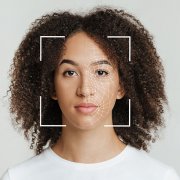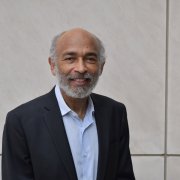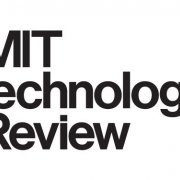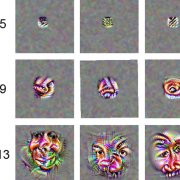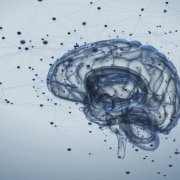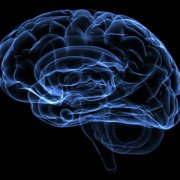June 16, 2022 - 2:30 pm
A new computational model could explain differences in recognizing facial emotions.
Matthew Hutson | McGovern Institute for Brain Research
Many of us easily recognize emotions expressed in others’ faces. A smile may mean happiness, while a frown may indicate anger. Autistic people often have a more difficult time with this task. It’s unclear why. But new research, published June 15 in The Journal of Neuroscience, sheds light on the inner...
May 30, 2022 - 2:15 pm
Hate is a powerful negative emotion, but a word that is easy to say. For example, many of us profess to hate public figures, such as politicians. One has only to browse social media to find declarations of hate for those in the public eye. So, is hate a hard-wired emotion in people? Medical News Today looked at the science behind why people feel hate.
The Merriam-Webster dictionary defines hate as being one of the following:
intense hostility...
May 25, 2022 - 2:00 pm
Podcast description [translated to English from Italian by Google]: They are two pioneers of artificial intelligence. Both Europeans transplanted to the United States, they are global reference points in research on the mechanisms of vision, perception in general and deep learning. The Italian physicist Tomaso Poggio, director of the Center for Brains, Minds, and Machines at the Massachusetts Institute of Technology, and the French...
May 24, 2022 - 2:30 pm
Postbac Jessica Chomik-Morales hopes to inspire the next generation of Spanish-speaking scientists with her podcast, “Mi Ultima Neurona.”
Jennifer Michalowski | McGovern Institute for Brain Research
Jessica Chomik-Morales had a bicultural childhood. She was born in Boca Raton, Florida, where her parents had come seeking a better education for their daughter than she would have access to in Paraguay. But when she wasn’t in school, Chomik-Morales...
May 24, 2022 - 2:30 pm
Brown and three other scientists recognized for advancing statistical, theoretical analyses of neuroscience data.
David Orenstein | Picower Institute for Learning and Memory
The Gruber Foundation announced on May 17 that Emery N. Brown, the Edward Hood Taplin Professor of Medical Engineering and Computational Neuroscience at MIT, has won the 2022 Gruber Neuroscience Prize along with neurophysicists Laurence Abbott of Columbia University,...
April 28, 2022 - 2:15 pm
Prestigious honor society announces more than 250 new members.
Seven MIT faculty members are among more than 250 leaders from academia, the arts, industry, public policy, and research elected to the American Academy of Arts and Sciences, the academy announced Thursday.
One of the nation’s most prestigious honorary societies, the academy is also a leading center for independent policy research. Members contribute to academy publications, as...
April 27, 2022 - 12:00 pm
Excerpt:
"The researchers, led by Nancy Kanwisher and collaborator Josh McDermott, had previously identified a population of neurons in the auditory cortex that respond specifically to music by using functional magnetic resonance imaging (fMRI) on subjects as they listened to a recording of 165 sounds. But they were able to gather much more precise information by directly recording electrical activity in the brains of 15 people via electrodes...
April 25, 2022 - 10:30 am
Dr. Kelsey Allen, MIT PhD '21, awarded the prestigious Glushko Dissertation Prize in cognitive sciences for her PhD thesis entitled “Learning to act with objects, relations and physics."
"The goals of these prizes are to increase the prominence of cognitive science, and encourage students to engage in interdisciplinary efforts to understand minds and intelligent systems. The hope is that the prizes will recognize and honor young researchers...
April 14, 2022 - 1:15 pm
Fellowship funds graduate studies for outstanding immigrants and children of immigrants.
Julia Mongo | Office of Distinguished Fellowships
MIT graduate student Fernanda De La Torre, alumna Trang Luu ’18, SM ’20, and senior Syamantak Payra are recipients of the 2022 Paul and Daisy Soros Fellowships for New Americans.
De La Torre, Luu, and Payra are among 30 New Americans selected from a pool of over 1,800 applicants. The fellowship honors...
April 6, 2022 - 4:15 pm
When artificial intelligence is tasked with visually identifying objects and faces, it assigns specific components of its network to face recognition — just like the human brain.
Jennifer Michalowski | McGovern Institute for Brain Research
The human brain seems to care a lot about faces. It’s dedicated a specific area to identifying them, and the neurons there are so good at their job that most of us can readily recognize thousands of...
April 5, 2022 - 4:30 pm
Dr. Demis Hassabis, Founder and CEO of DeepMind
The Spring 2022 Brains, Minds, and Machines (BMM) Seminar Series will be hosted in a hybrid format. Please see the information included below regarding attending the event either in-person or watch via live stream.
Abstract: The past decade has seen incredible advances in the field of Artificial...
Abstract: The past decade has seen incredible advances in the field of Artificial...
March 29, 2022 - 4:15 pm
In a new study, intracranial electrodes helped reveal the cells in our brains and the neurological mechanisms responsible for memory creation.
By Conor Feehly
The successful formation of memories is an essential function in humans. Our memories provide us with data on past events and experiences which mandate how we behave in the here and now. Memories are also central to the formation of a concept of self, as the autobiographical nature of our...
March 22, 2022 - 2:00 pm
Virtual (Zoom)
Alexander Borst, Max-Planck-Institute of Neurobiology, Martinsried, Germany
This talk will be fully remote via a Zoom Webinar.
Detecting the direction of image motion is important for visual navigation, predator avoidance and prey capture, and thus essential for the survival of all animals that have eyes. However, the direction of motion is not explicitly represented at...
Detecting the direction of image motion is important for visual navigation, predator avoidance and prey capture, and thus essential for the survival of all animals that have eyes. However, the direction of motion is not explicitly represented at...
March 7, 2022 - 2:45 pm
Study identifies brain cells that form boundaries between discrete events
Researchers have identified two types of cells in our brains that are involved in organizing discrete memories based on when they occurred. This finding improves our understanding of how the human brain forms memories and could have implications in memory disorders such as Alzheimer's disease. The study was supported by the National Institutes of Health's Brain Research...
March 2, 2022 - 5:15 pm
Researchers find similarities between how some computer-vision systems process images and how humans see out of the corners of our eyes.
Adam Zewe | MIT News Office
Perhaps computer vision and human vision have more in common than meets the eye?
Research from MIT suggests that a certain type of robust computer-vision model perceives visual representations similarly to the way humans do using peripheral vision. These models, known as...

